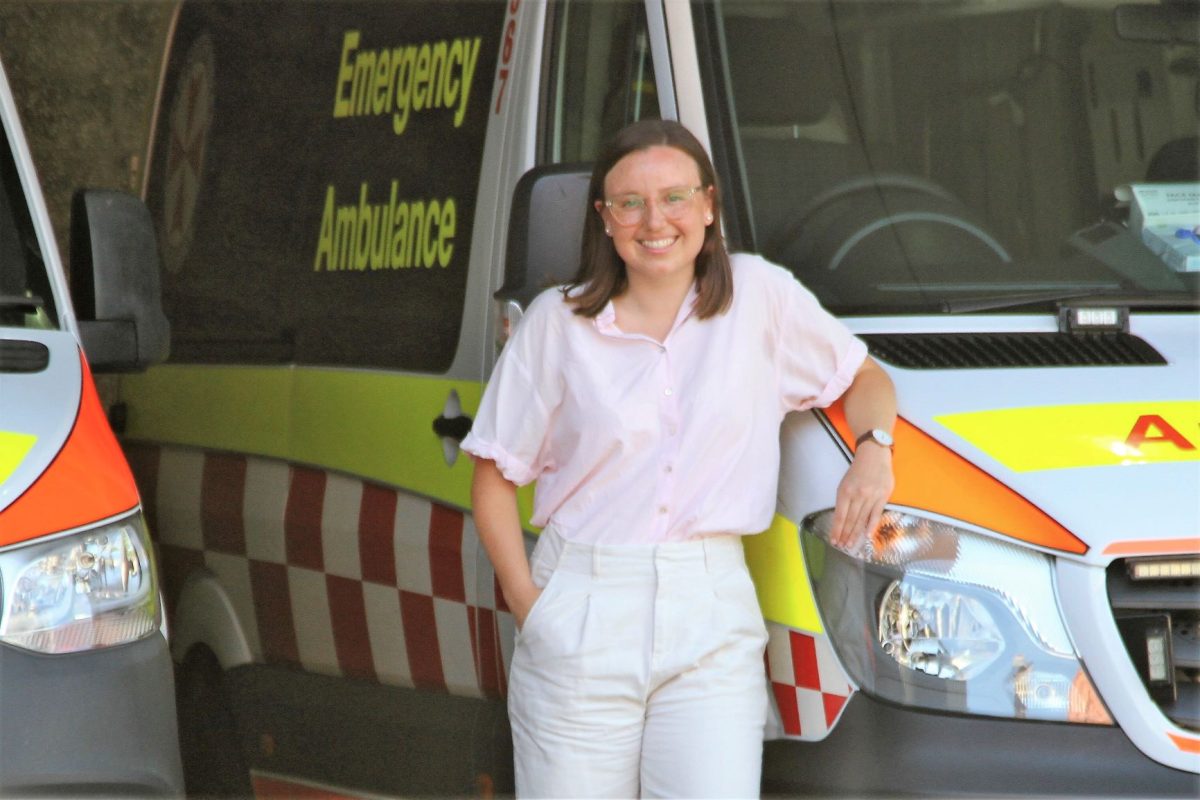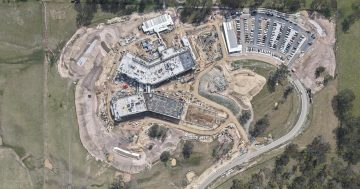
Dr Juhrmann said many palliative care patients had expressed a clear wish to die at home with family instead of being transported to hospital following straightforward pain management by a paramedic. Photo: Hammond Care.
A proposed national framework suggests paramedics could help ease pressure on emergency departments by supporting palliative care patients who wish to die at home.
Published in the leading international peer reviewed journal Palliative Medicine, the framework seeks to embed palliative care into paramedics’ core business and reduce needless transports to hospital.
The Department of Health and Aged Care defines palliative care as person and family-centred treatment, care and support for individuals living with a life-limiting illness such as cancer, motor neurone disease or dementia.
Lead author and trained paramedic Dr Madeleine Juhrmann developed the framework in consultation with paramedics, palliative care doctors, GPs, carers with lived experience and others.
The expert group – representing six countries and all the states of Australia – agreed on the framework’s 32 service changes to standardise best practice for paramedics delivering palliative care in community-based settings.
A research fellow at Flinders University, Dr Juhrmann claims paramedics already play an integral role in providing unscheduled palliative care to patients in these settings. However, this can vary significantly and needs to be supported.
“Paramedics are uniquely placed to respond to palliative and end-of-life care patients in the community, particularly after-hours when specialist palliative care services might be unavailable,” she wrote in the journal article.
“When adequately trained and supported, paramedics can enhance person-centred care, reduce avoidable hospitalisations and facilitate one’s preferred place of death.”
Dr Jurhmann said there was a growing demand for palliative care services worldwide and rising preferences for home-based deaths, which were accelerated by the COVID-19 pandemic.
One example is that of Leonie Jamieson, who was pleased to have her husband die peacefully at their Port Noarlunga home after receiving palliative care support from paramedics.
In her husband Neil’s final 24 hours, paramedics visited the home twice before he died from mesothelioma in 2019 at the age of 72.
Ms Jamieson said she was relieved the ambulance officers respected his wishes to not be intubated and taken to hospital, as per his advance care directive form.
“I had to get the form, which the paramedics read through very thoroughly and then said, ‘Yep, we completely understand,'” Ms Jamieson said. “They then put the form aside and explained to me how to make Neil more comfortable.”
South Australian Ambulance Service Extended Care Paramedic and Team Leader Andrew Noble participated on the expert panel that developed the framework.
He said this research would aid ambulance services enormously in developing policies and practices that were consistent across the country, and informed by best practice and the specific needs of palliative patients who wished to remain at home.
Dr Jurhmann’s framework was developed as part of her PhD studies at the University of Sydney with the support of the HammondCare Foundation.
The health and aged care provider assigned Professor Josephine Clayton as her supervisor. She will continue helping Dr Juhrmann as they gather a team together to create an implementation strategy that can address any obstacles to applying the framework in policy and practice.
The framework’s key components include:
- Providing paramedics access to electronic medical records to view patients’ advance care planning and palliative care details in real time
- Having ambulance services maintain best practice palliative and end-of-life care guidelines, including the ability to deliver specific medications for common end-of-life symptoms without transport
- Incorporating and connecting paramedics to localised palliative care referral pathways, like alternative referral destinations beyond an emergency department.






